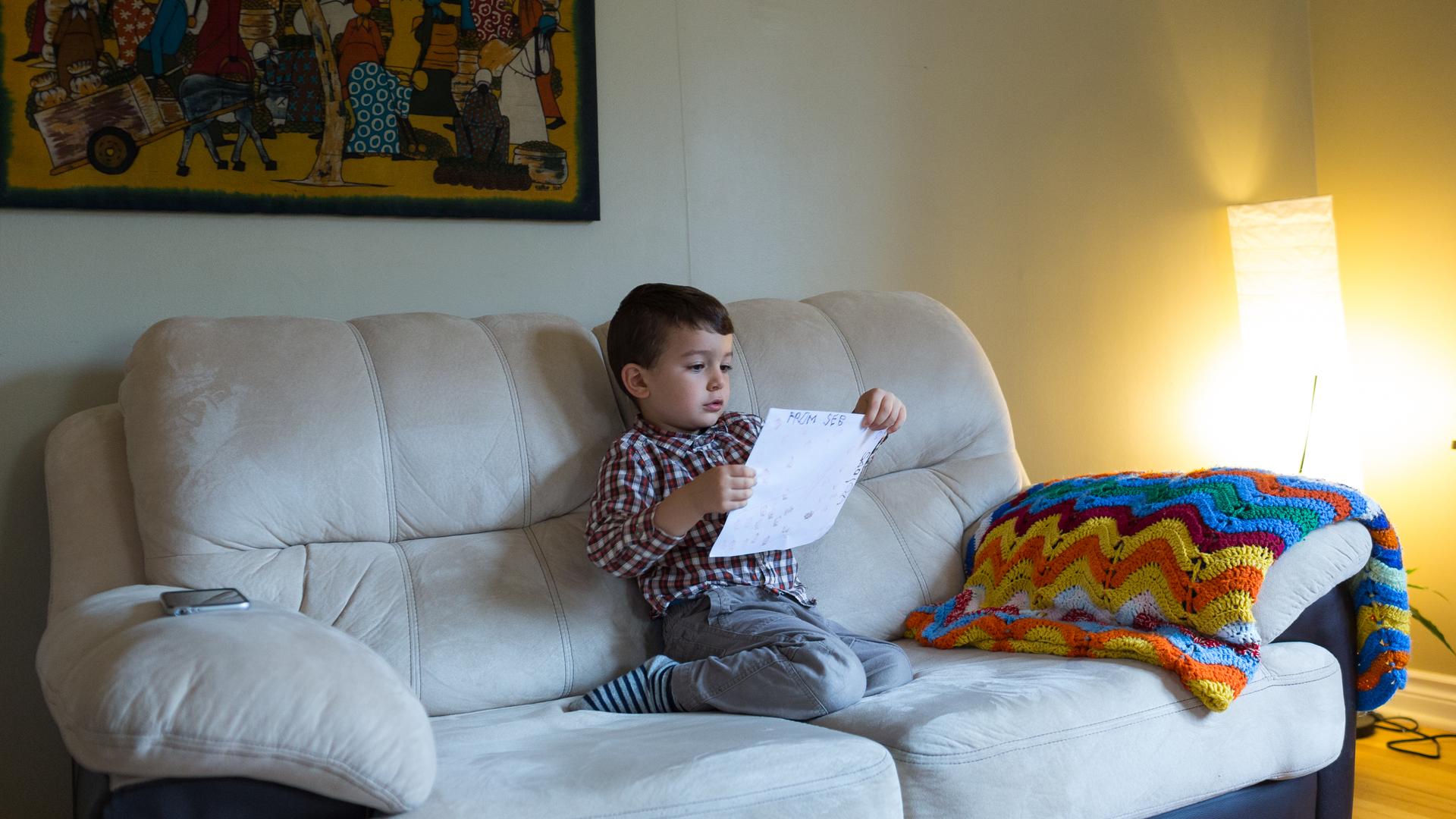A 3-year-old held up by Canada’s no-fly list? His parents say it’s ‘ridiculous.’
The first time Zamir Khan and Heather Harder realized their son Sebastian was being singled out for scrutiny on flights was when he was 6 weeks old. "When we take a trip on an airplane, we book our tickets like everybody else. And when it’s time to check in online, we’re not able to," Harder says. The family lives in London, Ontario in Canada.
On a chilly November day, Sebastian Khan is kneeling on the floor of his home. He has short, dark hair and brown eyes. His tiny, soft hands grips the top of a yellow toy truck as he swipes it side to side.
Sebastian is 3 and curious about everything around him. He especially loves flying.
“When we’re going through the clouds,” he says, jumping up and opening his arms like wings, “I’m like, ‘Where am I?' Everything starts to look like toys."
He took his first flight when he was just six weeks old, some 1,400 miles across southern Canada. That was the first time his family hit a roadblock while traveling, though, at the time, they did not suspect it had anything to do with the way countries share intelligence and use no-fly lists.
They would find out later that they're one among many families in Canada whose children have to go through a special process to board an airplane. And that those restrictions are likely related to a terriorism watchlist shared by the US with Canada and other countries.
Update: On Feb. 27, the Canadian government passed a federal budget that includes funding to change how those watchlists work. This story has been updated to reflect that the bill passed.
“My family is out in Saskatchewan,” says Sebastian's mother, Heather Harder, in their London, Ontario, home. “We were taking him back to show him off to everybody.”
"When we take a trip on an airplane, we book our tickets like everybody else. And when it’s time to check in online, we’re not able to," she says.
At first, Sebastian’s parents didn’t think much of it. Maybe they had made a mistake. Maybe that’s what flying with kids is like. Sebastian is their first child, so they figured everything takes double the time and effort.
Then it happened again. And again.
Harder says the airline agents made up excuses like, “There’s been a booking error,” or, “You didn’t select the right title.”
At first, she says, "We would make a note to ourselves and say, ‘OK, next time we will get it right." But after a while, it seemed strange. "I just kept on thinking somebody is not telling us something."
When Sebastian was 15 months old, a ticket agent finally told them the truth: Their son’s name matches that of a terror suspect on the no-fly list.
"I thought, ‘You’ve got to be kidding me,’" remembers Harder. "This is ridiculous."
A WestJet Airlines agent told them that every time they book a flight under their son's name, they have to take him to the counter, in person. Then they’ll have to wait for the ticket agent to make a phone call and clear him for the flight. She didn't say whom she calls.
"She said she has two young twins," Harder says. "She was a mom. She felt like we deserved to know."
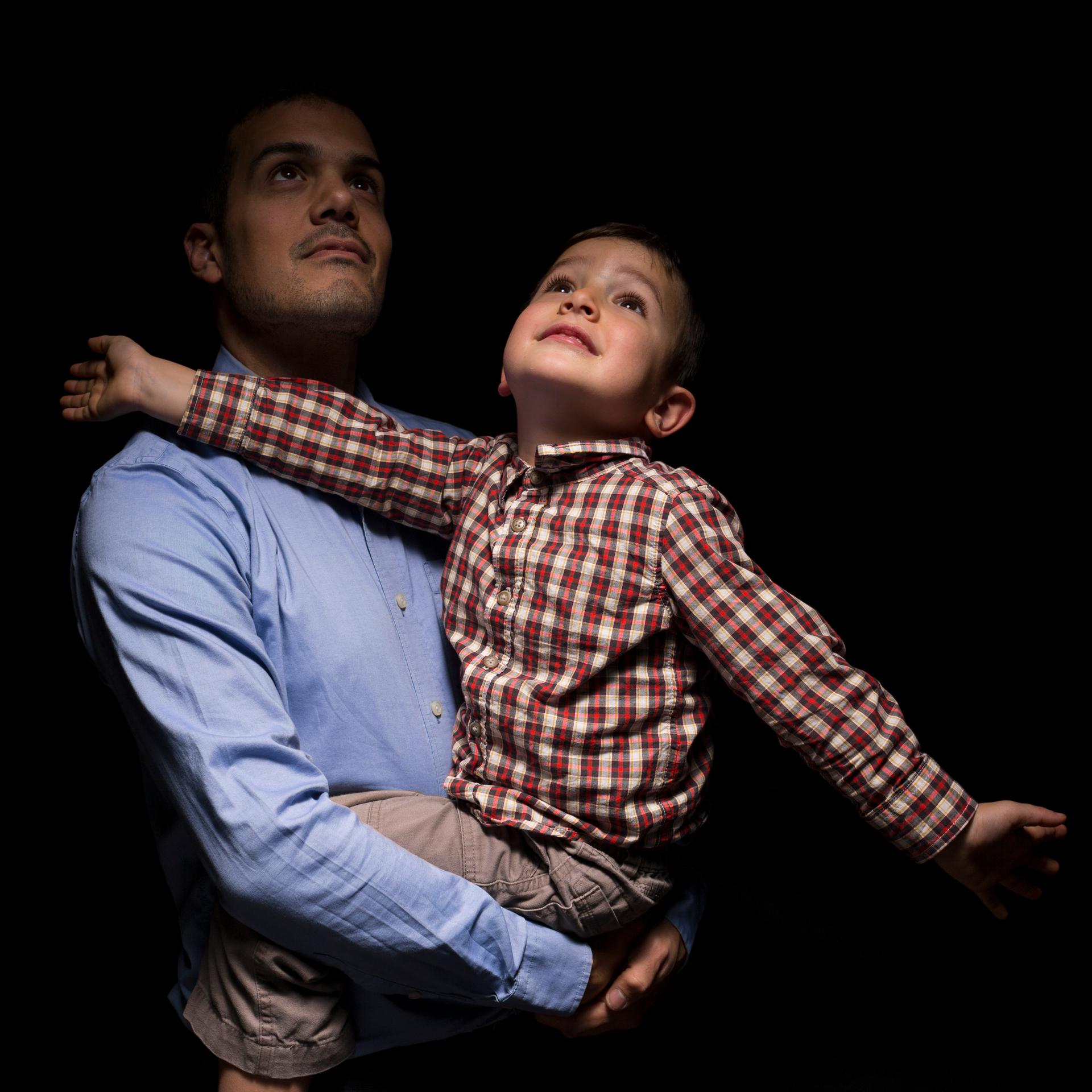
Hear Zamir Khan.
In the last two years, at least 100 families across Canada have come forward to say that their children, sometimes just a few weeks old, are flagged on Canada's no-fly list. WestJet told PRI that they follow aviation security regulations and that customer service agents don’t have access to confirm whether a passenger is on the no-fly list.
But now that Sebastian’s parents feel they knew why their son was being delayed at airports, they are on a search for answers.
"I got on the Internet, I got on the phone, I started researching — is this actually possible?" says Zamir Khan, Sebastian’s father..
"For myself, I would say it’s maybe five hours additional a week, but for Zamir, it’s a second job," says Harder.
Khan has met with Canadian politicians about the problem, but he finds he has to explain the no-fly lists to them. "Because of the research that I've done, they're asking me how this works technically," he says. He’s a software consultant by profession.
In two years, Khan has talked to many reporters and spent hours on the phone with members of parliament or their offices. He has participated in campaigns to raise awareness about no-fly list children and testified to a parliamentary committee.
Still, he says, he is no closer to a resolution to the problem.
The secrecy and sensitivity surrounding the no-fly lists doesn't help. Typically, countries like to keep these lists close. But Khalid Elgazzar, a lawyer in Ottawa, Ontario, who represents some of the families with kids on the no-fly list, says the Specified Persons Advisory Group is responsible for adding and — “we are told” — removing names from the list. It’s a group made up of representatives of different government agencies, including transportation, police and intelligence.
"They meet on a regular basis to share information about individuals who they feel may or may not be a threat to civil aviation,” Elgazzar says. The public doesn't have access to the information shared in their meetings.
“This system flips the presumption of innocence on its head. People are presumed to be a risk without having had any opportunity or any ability to oppose that," he says. It’s "a Kafkaesque situation where you don’t really know how to fight your way out of it."
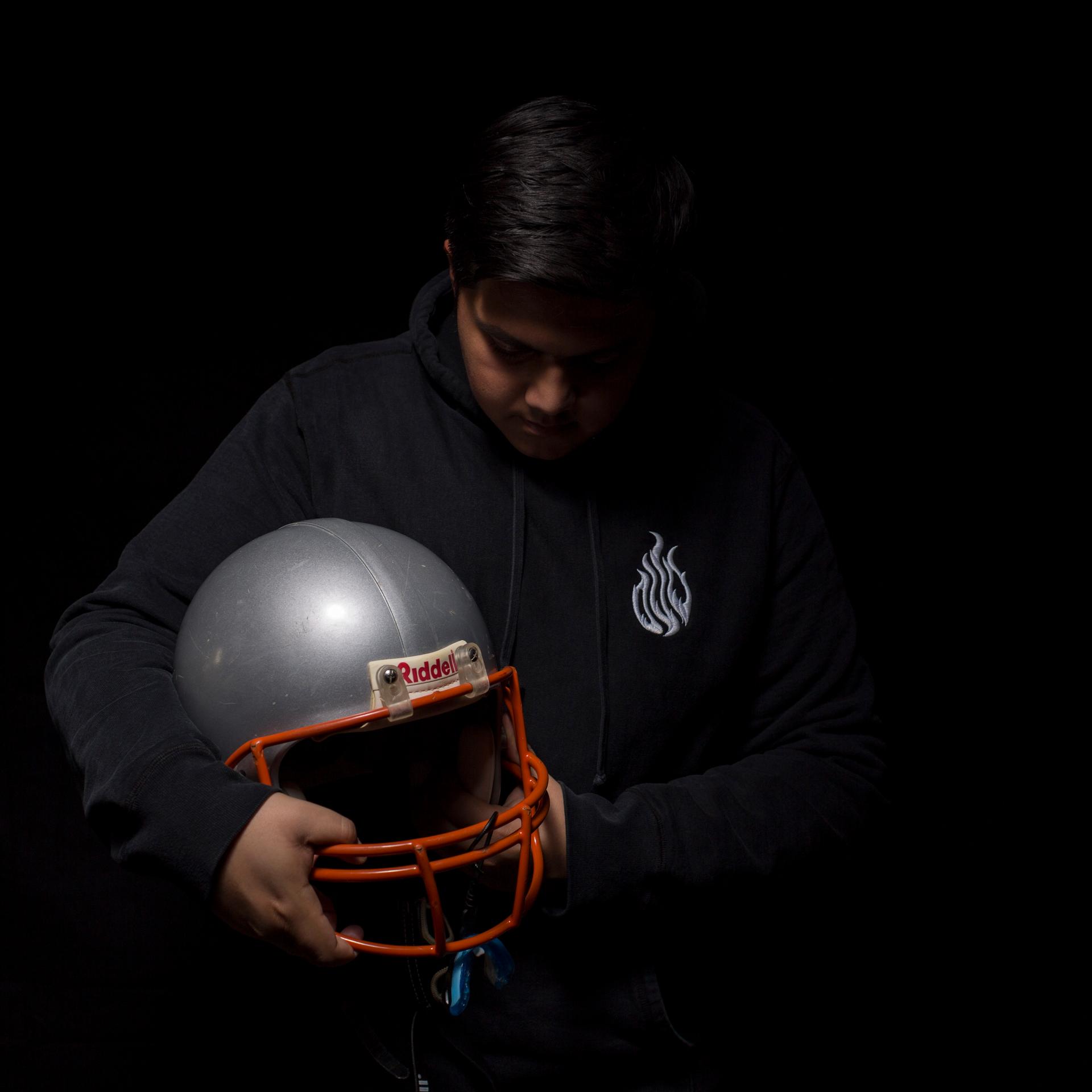
Mohammad Sehel Ali likes his name. Hear why.
Advocates like Elgazzar take issue with the process by which people are added to the no-fly list. But they also worry about something else: How governments share information on their watchlists.
“We know that the United States shares information about its master terrorism watch list with multiple other countries including Canada,” says Hina Shamsi, director of National Security Project at the American Civil Liberties Union in New York.
In 2016, President Barack Obama and Prime Minister Justin Trudeau agreed to greater information sharing. "We have jointly developed protocols to exchange information on those who present a clear threat, including exchanging our respective ‘No-Fly’ lists, with appropriate protections for the handling and dissemination of such information and processes to correct inaccurate information," said a White House release.
Shamsi says this means that anyone on the Canadian no-fly list would not be able to board a plane to the US, or even fly over US airspace.
"It's part of what's called the Five Eyes," says Elgazzar. "These are five countries — Canada, US, United Kingdom, New Zealand and Australia — that have an agreement in place where they more readily share intelligence information with each other."
Emily Gilbert, who researches borders, security and citizenship at the University of Toronto, says the agreement is deeper between the two neighboring countries. "There's also an agreement between Canada and the United States that even if you're flying within Canada but your plane may have to make an emergency landing in the United States or go through American airspace, that information is shared,” she says.
PRI contacted the FBI, which handles the US no-fly list, for this story and a spokesperson directed us to the “Frequently Asked Questions” page on its website, adding, “We don’t have any additional information for you.”
Ayesha Vahidy and her family learned about the flow of information between the US and Canada firsthand. Their long journey to finding out that their son’s name matches that of a suspected terrorist on the no-fly list began when they were flying from Toronto to Arizona. It was 2006 and he was 5.
"We got to US immigration, they returned two passports and kept one," Vahidy recalls. "And we assumed it was my husband's. They came and asked, ‘Who was Mohammad Sehel Ali?’ and we were like, ‘Oh, that’s my son and he’s in the stroller.'"
They had to wait an hour and a half for clearance to board the flight.
Then it happened again. On a flight from Costa Rica to Canada they transferred in Miami. This time, the extra wait meant they missed their flight and they had to spend the night in Miami — on their own dime.
“They did a mini-check with our passport and they realized he's on the list. So they sent us over to immigration. We spent about 8 hours in immigration on that day," says Vahidy. An agent told her that his name matched someone else’s on the no-fly list. "He was 10 years old!"
Those experiences have stayed with Sehel, who is now 17. They have impacted not only his family’s travel plans, but their plans for his future.
"Whenever we go through immigration, my child is looking at me and apologizing,” says Vahidy. “And I hate that. He feels bad because he thinks he’s done something wrong. He’s done nothing wrong except be named something. Which is actually what we did to him."
The day I meet the family at their home in Toronto, Sehel has just returned from school. He's wearing a hoodie and looks a little worn out from staying up the night before to study for a math test. A painting hangs on the wall of his bedroom.
"It's a painting of a quarterback," he tells me, "with all the football gear, with the football in his hand."
It turns out that Sehel loves American football and he used to play on his school’s team. But as he got older, he had to think hard about whether he should continue.
"The higher divisions you go into," he says, "the more games there are in the states, maybe like New York or Florida."
He’d have to fly regularly and go through the same, long clearance process every time. It was too much.
"Instead of going to a higher division, I stayed in the lower division. Then I stopped."
They were worried about the risks of injury and concussion, his mom says, but they also thought about more flights to the US.
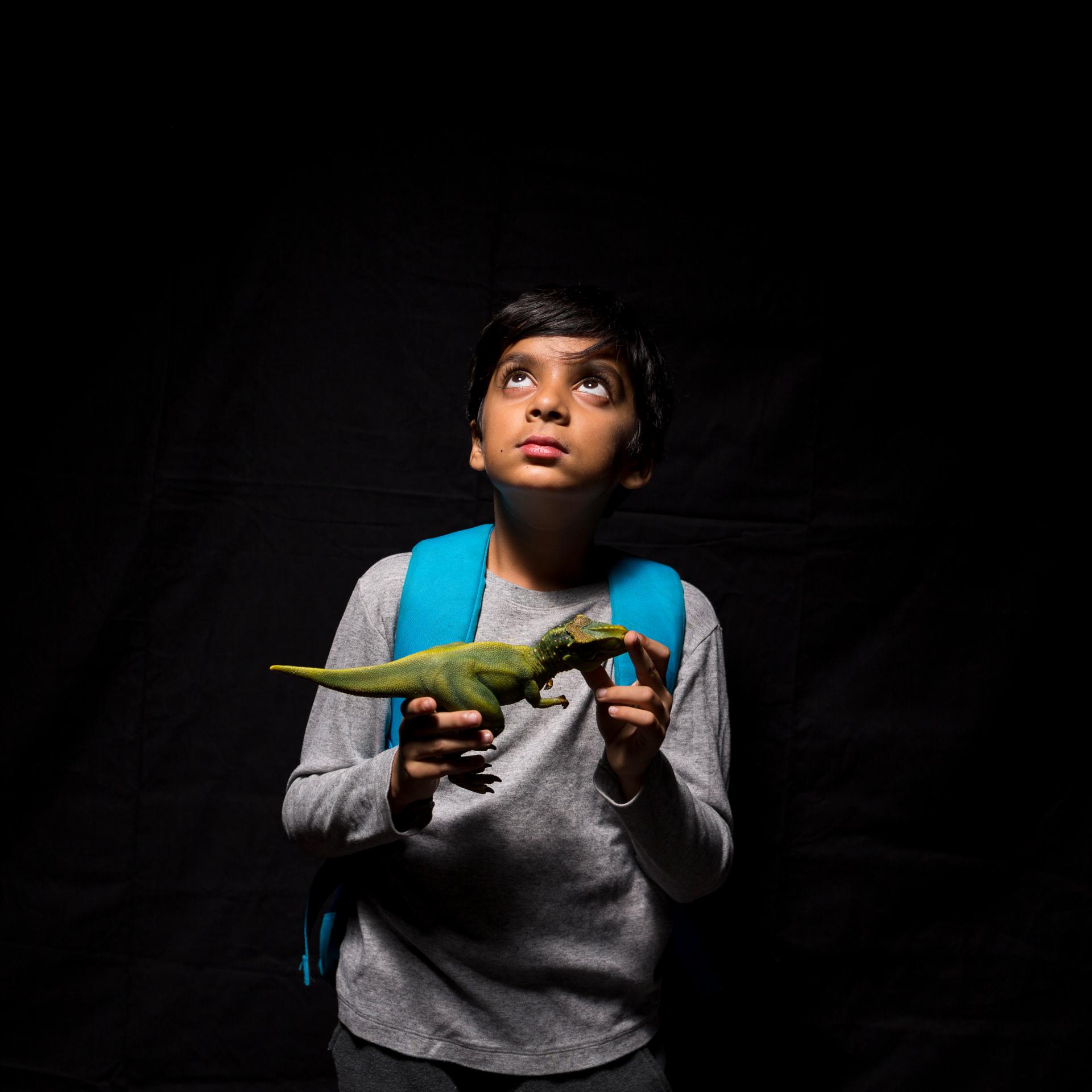
Hear Khadija Cajee.
These days, worry is starting to turn to panic for Sehel’s parents. He’s going to be 18 soon. He didn’t pick up football, but what if he wants to travel by himself or with his friends? What’s going to happen when his parents are not around to help him navigate the situation? Would his friends mock him every time he gets pulled aside for extra screening?
“Even right now, as he’s applying to go to university, that’s in my head,” says Vahidy. “What if he decides he wants to go to university in the US? Then what? Am I going to stop him from getting an education or go study where he wants to study?”
It’s not just the inconvenience, though. These families say there’s a stigma to having your child’s name associated with a terror watch list.
Gilbert, from the University of Toronto, says the situation gets more complicated as children get older.
“When they are young children, we can see the ridiculousness of the fact that they are given secondary screening or perhaps even prevented from flying. When you're older and you face these kinds of problems, the suspicion that's attached to your body is so great that we have very few people who are young adults or older men coming forward and telling us about their problems,” she says. “Because once you have that suspicion attached to you, it's very, very hard to have it removed."
Sehel’s father, Dawood Khan, wants to know how this could impact his son's life beyond airports and ticket counters.
"Today, we call this a no-fly list. Tomorrow this no-fly list, this data, could end up in god-knows-whose-hands and it could become a no-jobs list, no-credit list. You name it."
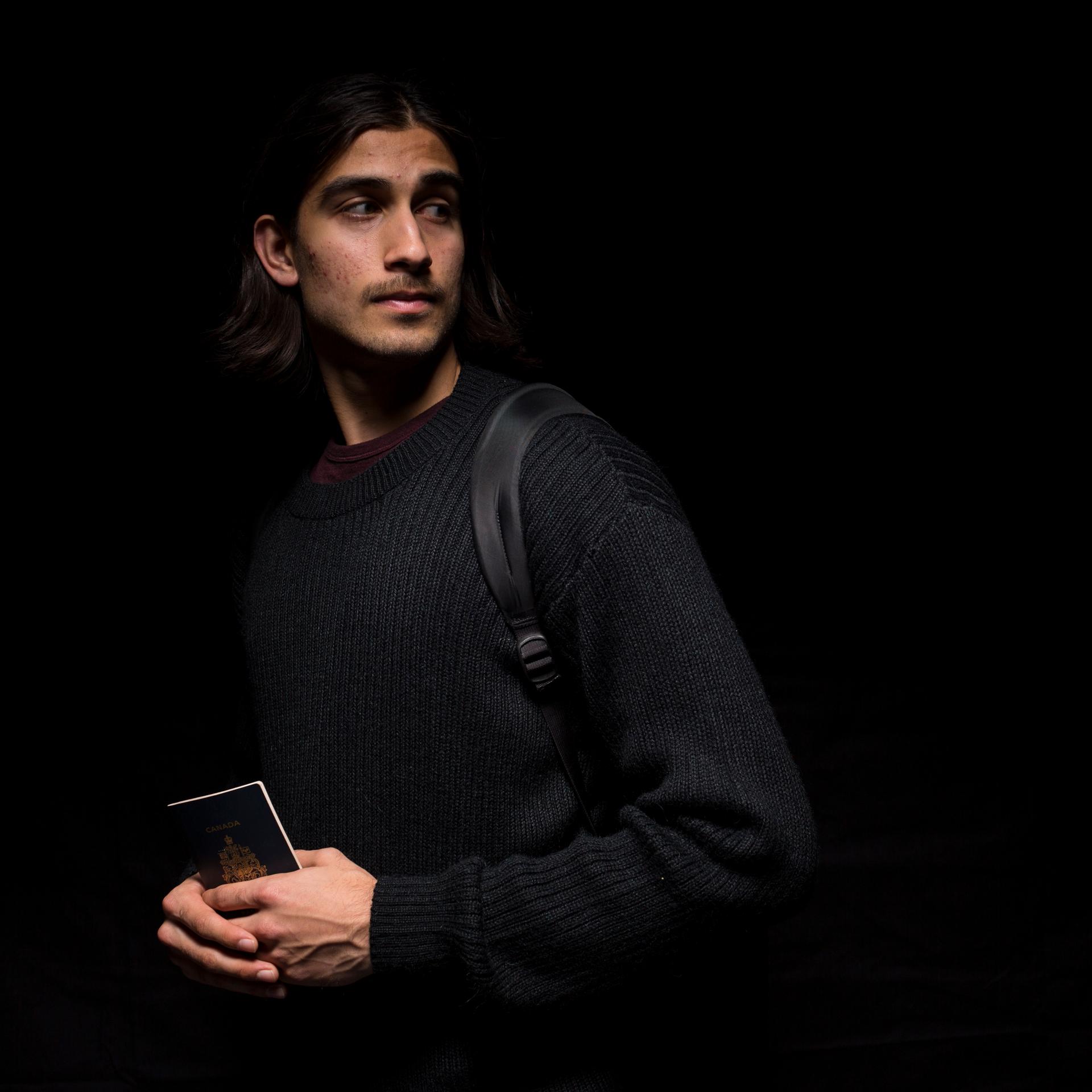
Hear Yusuf Ahmed.
Heather Harder and Zamir Khan, parents of 3-year-old Sebastian, say their patience is growing thin.
"I need this to be fixed by the time Sebastian turns 18," says Harder. "This isn’t something that somebody has to deal with for their entire life."
More and more families with children flagged on the no-fly list are coming forward and, about two years ago, a community began to emerge. Today, they have a website and are active on social media.
In November 2017, roughly a dozen families went to Canada’s capital in Ottawa to make their case to politicians.
Public Safety Minister Ralph Goodale, for his part, says the government needs the federal budget to include funding for a new computer system to improve the situation.
After two years of research, Zamir Khan also sees this as purely a technical problem. He says children like his are wrongly flagged because currently the system relies solely on names. A simple solution, he thinks, would be to match names with additional data.
"You have a list of names, you have their birth dates, you have other identifiers, and all you're doing is matching these together."
Khalid Elgazzar, the lawyer in Ottawa, also believes the fix shouldn't be too complicated. "I mean, look. We're talking about intelligence agencies. They know a whole lot more than just our names.”
Elgazzar and Khan also both point to the US system, where if someone is wrongly flagged on the no-fly list, they can dispute it through a redress program. That system was created in 2015 after a lawsuit was filed on behalf of US citizens who were restricted from flying. Now, if someone thinks they are mistakenly on a no-fly list, the government can issue a redress number to add to their flight itineraries, without actually telling them if they were ever on a no-fly list.
Canada doesn't have a redress program in place.
WestJet, however, says they have created their own internal form of redress. Passengers can talk to any customer service agent in Canadian airports to enroll if they think they share a name with someone on the no-fly list.
Goodale, Canada's Public Safety Minister, told the Canadian parliament in November that his agency needs three things: “It takes legislation, new regulations and a new computer system to fix that problem.”
Then, he asked the members of parliament to pass a bill, which the government put forward in July, claiming that it contains measures to fix Canada’s no-fly system. On Feb. 27, the Canadian government passed bill C-55, which includes funding for a new screening system. The bill has given some parents cause to think there might finally be some action.
"I'm filled with gratitude, pride, and hope today," Khan tweeted. "Ordinary citizens can, through grassroots efforts, change things for the better."

Hear Aadam Ahmed.
Harder and Khan say they have avoided talking to their 3-year-old son about the list. He's too young for such a complicated topic, they say. But it's not easy; he’s very inquisitive.
They took him with them to meet politicians in Ottawa and he overheard the conversations they had in meetings, with other parents and the media.
"He posed the question to me, 'Dad, what's a no-fly list?'" says Khan. They managed to talk around it.
"We don't have good answers," says Harder.
"For now, we are trying to insulate him. For now it's our problem to solve," says Khan.
But fixing the problem has not been easy. “When the issue first came out,” Khan says, “when we first brought it up to the government, I thought, ‘Okay, everyone thinks this is wrong. This will be fixed in no time.’”
That was two years ago.
“As the father of a child who’s personally affected by this, I’d say I’m angry at this point."
